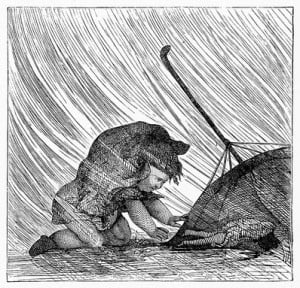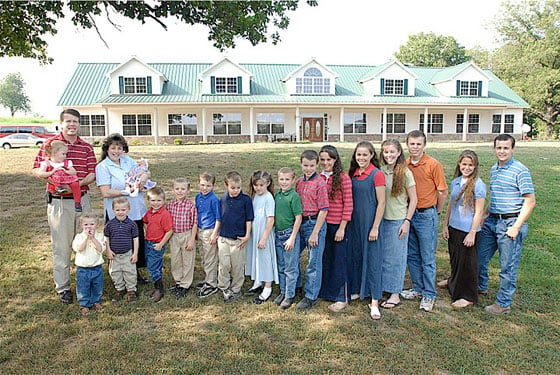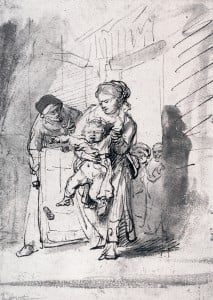I have a love-hate relationship with homeschooling. I was homeschooled K-12, and had never set foot inside of a regular school until I was in my 20’s on a tour.
There were things that I liked about Homeschooling. In the early grades I could finish all my schoolwork early in the day and spend the rest of the day outside. I enjoyed spending time with my siblings. My parents told me that they were homeschooling because they loved me, and that the school systems were terrible for so many reasons, so they were protecting me from them.
There are a lot of reasons to Homeschool, and on the surface many of them sound great! Looking back, most of the reasons my parent’s homeschooled just don’t resonate with me.
Here are some of the reasons I heard growing up:
1. Homeschooling creates smarter people. Schools shuffle kids through the classes regardless of how much they are catching, the classes are watered down, and kids are taught pretty much the same thing every year, year after year. So at the end of school many kids come out stupid. Homeschool creates smart people. Every child can move at their own pace (presumably a much faster pace then the schools), and since the parents know their child, they can spot anything the child isn’t getting and explain again until the child understands and actually learns the material.
While my education seems OK academically, homeschooling results vary widely. Some homeschoolers are pushed very hard by their parents, graduate early and get degrees at a very young age. Other homeschoolers “move at their own pace” and struggle with basic reading and math. And growing up I knew of both types.
2. Homeschooling provides protection from bad teachers. Everyone knows that a bad teacher can shape your self-confidence for the rest of your life. What if you have a teacher who hates you? A teacher who isn’t all that excited about teaching, or a teacher who is stretched too thin to really give you the attention you need? All of those problems are solved by homeschooling because who cares more about their child than their own parent?
On the surface this seems to make a lot of sense. But in reality all of these issues still exist in Homeschooling. Regardless of how much parents love their child, they will have subjects they either don’t know much about or teach in a boring way. Parents can just as easily be stretched too thin because they are trying to be a parent and a teacher to many different children at many different stages of learning. Only now, instead of having a terrible math teacher in 6th grade and moving on in 7th grade, you have the same teacher, approach and critique year after year.
3. Homeschooling means you can pass on your faith without interference. Now your kids won’t be taught evolution,environmentalism and homosexuality in the schools. You can teach them from the start what God really wants from us without having it clouded by the world’s agenda.
Again, this sounds nice, except religion 24/7 starts to look a lot like indoctrination. Your parents are their to observe, critique, and evaluate your religious understanding and attitude in every circumstance. The pressure is relentless. Honestly, religion in my childhood has burned me out. God feels like my parents to me, I have a hard time understanding His love as truly unconditional. I grew up obsessed with “staying in the lines” and making sure that everyone else did too. After all, we were all going to hell if we didn’t!
4. Homeschooling means flexibility. You can go on vacation even during the school year. Homeschooling means you have an easier time getting into private music lessons and other activities because you are not confined by a school schedule.
This one is still true, and has a lot of appeal. The question is, would you actually take advantage of this opportunity? Homeschooling could be a great option if you are going to travel across the country in an RV for a year or something else similar.
5. Homeschooling provides protection from all the horrible stuff in our culture. In schools, children are exposed to bad influences, ranging from music and dress to attitudes and drugs. Keeping your kids at home insures that you can keep them from finding out about those things, plus even worse things, like sex!
Shielding from whatever parents are uncomfortable with, gets ridiculous sometimes. I grew up very isolated, and homeschooling contributed to that. Creating an alternative world is impossible, eventually the children discover there is a bigger world and mom and dad are hiding things from them.
6. Homeschooling provides opportunity for individual learning and expression. In the school system, the training is designed for cookie cutter worker ants for the country. In homeschooling, you are free to be who you really want to be instead of being confined by the system.
Although it may seem as though there is more room for expression outside of the school system, it’s not always true. Individualized learning depends on time and commitment that the parent is able to offer each individual, and the child’s expression is stifled by whatever the parents feel is acceptable.
7. Homeschooling preserves the family instead of creating artificial peer groups. Children that go to school only learn to relate to people their own age. That type of environment doesn’t exist in the real world, so they come out of school looking down on younger people and disrespecting older people. Homeschool forces kids to relate to people of all ages.
Growing up this turned into “family trumps all, no friends allowed”. Going it alone is a mentality that permeates homeschoolers. After all, they are bucking the system by choosing to homeschool in the first place. This can be isolating. Growing up, we rarely did anything that did not involve the entire family. We had very few people to relate to outside of the family system, children or adults. Getting any kind of help (counseling or tutoring) was like admitting that homeschooling was failing, we had to prove that homeschooling could work and that did not include outside influence. Homeschooling created an “Us Vs. Them” mentality, everyone was out to get us. Everyone else in the world had an agenda for our lives and our parents were protecting our “freedom”.
Homeschoolers are told that if they protect their children by homeschooling, they will prevent anything bad from ever happening to their kids. Things like drugs and alcohol, premarital sexual activity and sexual abuse, self-harm (cutting) and depression, eating disorders, educational problems and bullying can all be avoided just by homeschooling your children.
It’s not true.
All of these issues have happened in homeschooling families I personally know. Many of these things have happened in my own family. I’ve come to the conclusion that many of these issues depend on the health of the family system, not the method of education. Some things will happen regardless of precautions taken to ward them off, it’s called free will.
So as a parent, I am not sure what I will do. (And I’m not the only homeschool grad who thinks this way) One the one hand, I have no experience in an actual school. Pretty much everything I’ve ever heard about school are the horror stories told me in childhood. I appreciate the time and effort my parents put into my education. I still have a pattern of thinking that prompts the fearful “what would happen if I let someone else influence them?”!
On the other hand, I feel that in homeschooling parents unwittingly make themselves responsible for every single thing in their child’s life, there is no one else to blame when things go badly and there is no one to help. Learning disorders may not ever be spotted and addressed. Issues within the family system are crippled by a lack of outside involvement. The child has no one outside of the family to ask for advice or go to for help.
I also feel that homeschooling parents are not free to just parent, now they have school too. That takes a lot of time and energy to be done well. You are now your child’s critic by virtue of having to push them to achieve in school. And in large families younger children can be be neglected because of the sheer amount of time and effort it takes to educate the older kids.
I think in the end it depends a lot on what the needs of the parents are as well as the needs of each child. Considering the links that my mom is always forwarding to me, my parents would not agree. And I’m okay with that!















